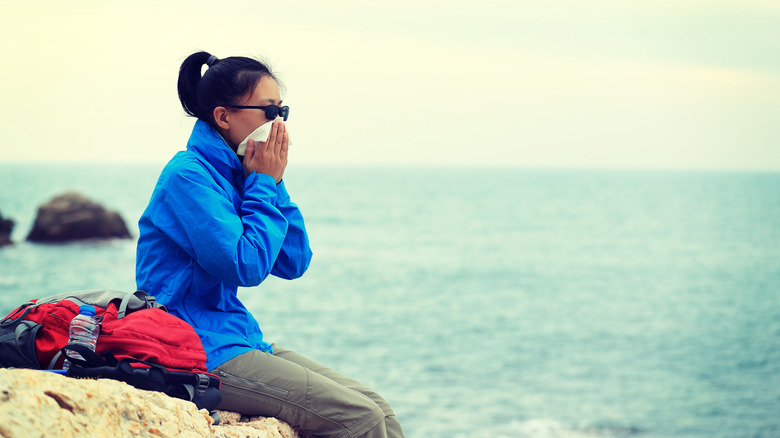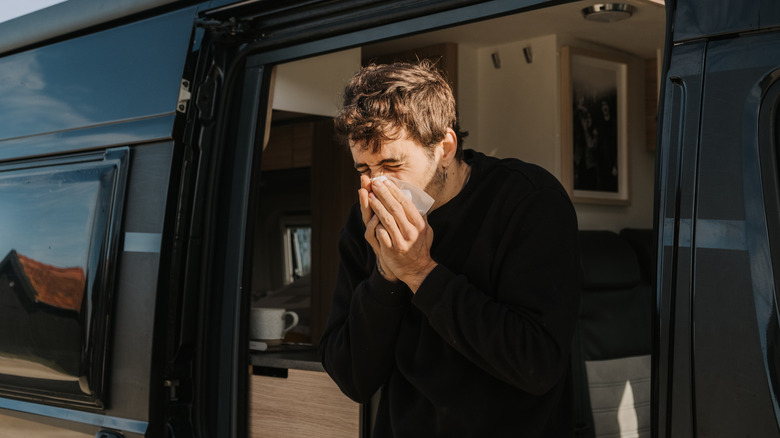What To Do If You Start Having An Allergic Reaction While Camping
Camping is usually an amazing experience, especially if you pick a gorgeous spot to pitch your tent like in one of the best fall camping spots in America. However, no matter where you choose to go camping — whether that is in a highly popular and visited campsite or somewhere where you are completely alone – it is important to have a plan for what to do during an emergency. Specifically, you should know what you will do if you or a fellow camper has an allergic reaction. Having a serious reaction while in the middle of nowhere can undoubtedly be scary and even dangerous. So, to learn more about what should be done in a situation like this, we spoke with Dr. Tania Elliott who is not only dual board certified in internal medicine and allergy/immunology, but also on faculty at NYU Langone Health and a spokesperson for the American College of Allergy, Asthma, and Immunology.
For starters, if you ever find yourself in a situation where you have a serious allergic reaction while camping and don't have an EpiPen, you should first call 911. Then, while you wait for emergency services to arrive, Elliott explains that the best thing to do is to "lay down and elevate the legs." According to Elliott, "In anaphylaxis (life threatening allergic reactions) the blood vessels dilate and rush to the feet so elevating the legs gets the blood back to those vital organs. But please remember to bring an EpiPen!" Here is what else she had to say.
What about non life-threatening allergies while camping?
If you have a surprise onset of mild seasonal allergies (like hay fever) while camping, it may not be a life-threatening situation. That said, even mild allergies can certainly put a damper on your trip, especially if you didn't bring any allergy medicine with you. According to Elliott, when this happens, "Try not to directly inhale campfire fumes as this secondary smoke can trigger asthma and allergy symptoms." To treat the problem without OTC medicine, Elliott recommends that campers have fresh ginger on hand. She explains, "Take a pot of hot water, bring it to a boil, and breathe in that humidified air. It can help decrease inflammation in your nasal passages, sinuses, and lungs. Add a few drops of oil of oregano as well which can help with itchy allergy symptoms and inflammation."
If you are going to an area that you know will cause you to have allergies, you can also prepare beforehand. To do this, Elliott suggests that campers "Take a non-sedating OTC antihistamine. For an herbal option, consider butterbur, 30 minutes to 1 hour before doing outdoor activities." To further help protect you, she also recommends "Wearing a mask or nasal filters (which are less conspicuous and go right at the tip of the nasal passages) to block allergens from getting into the nose."
Lastly, you'll want to ensure you're keeping your allergies in check after returning from your trip or settling into your tent at night. "Rinse off after a hike and leave your clothes at the foot of the tent before going in to reduce tracking pollen indoors," Elliott advises.
For more advice about managing allergies, check out Dr. Tania Elliott on Instagram.

